Game: “Word Forward”
Word Forward
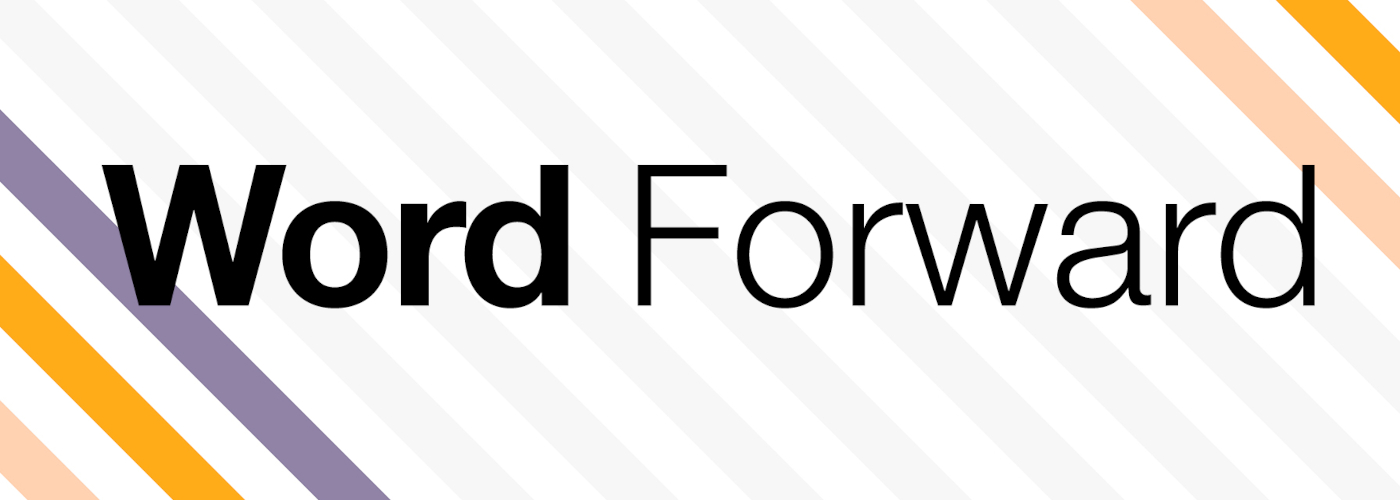
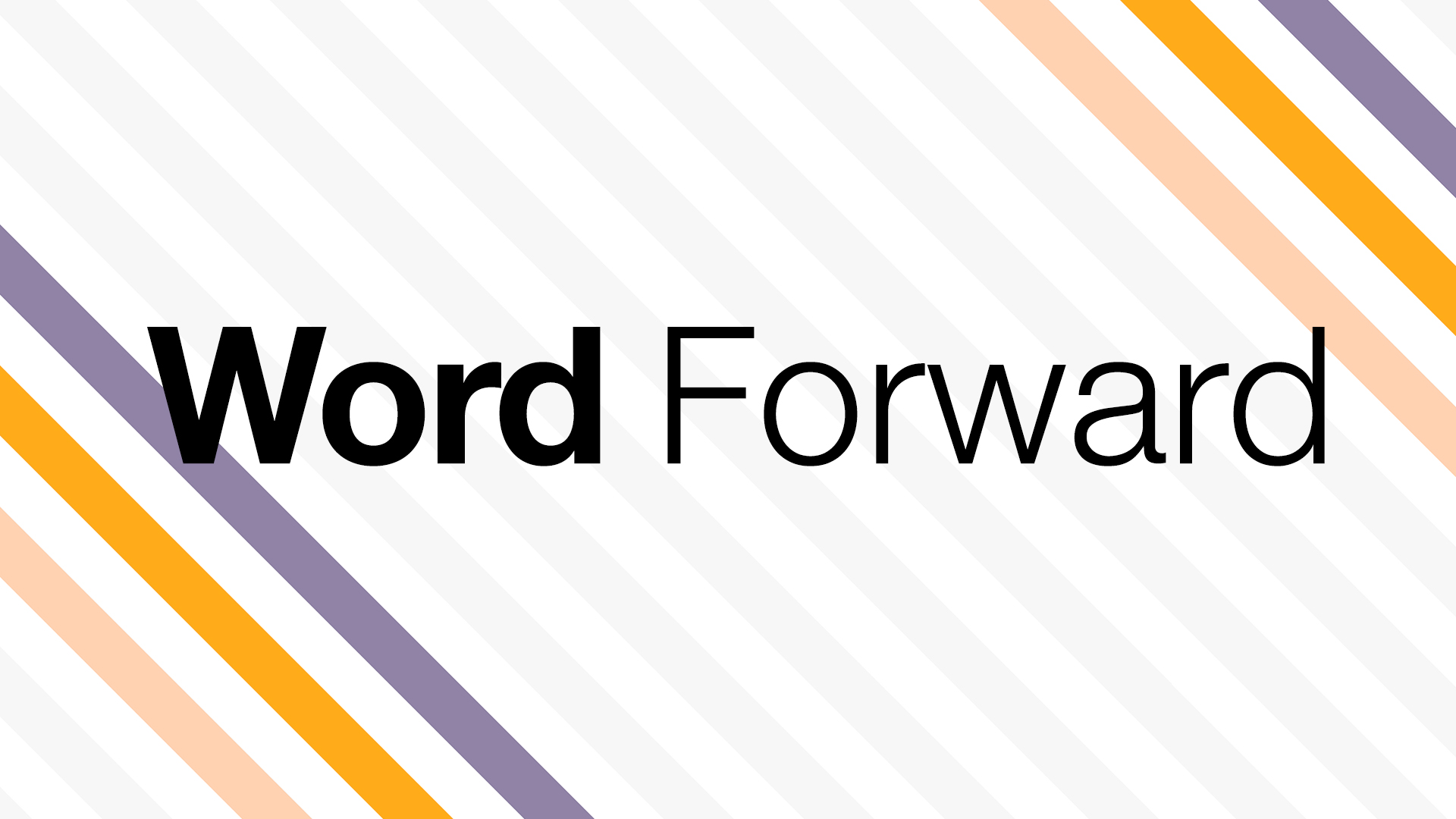
I know we’re all hurtling through life but I think I’m destined to be an old man: I voluntarily rented an allotment to grow vegetables, I’m constantly looking at my pension, and I think that everyone who is younger than me is a whippersnapper. I’m at a point in my life where I wake up excited for the day’s Wordle, and rather than heading out to the latest fancy cocktail bar, I’m content to lounge in my PJs, sipping a cup of tea while watching the latest episode of The Chase. I’m one flat cap and pair of slippers away from enjoying my 60s, despite being three decades away. These hands, which are disappointingly lacking in liver spots, grasp my Switch and load up not the latest open world epic, but a humble word game; Word Forward, a game that is almost my game of the year.
At A Glance
| Scores | |
| Visuals | 6 /10 |
| Sound | 4 /10 |
| Gameplay | 6 /10 |
| Overall | 7 /10 |
| Positives | + Challenging + Raft of 500 puzzles to keep you busy + No fancy UI |
| Negatives | – Seemingly impossible at first – Highlights any lack of vocabulary – Music doesn’t fit at all |
| Price (When Reviewed) | £4.99 |
| Our Playtime | 6 hours |
| Available On | Nintendo Switch, PC, iOS, Android |
On the face of it, Word Forward developed by Rocketship Park and published by Thalamus Digital looks a lot like Boggle; a simple 5×5 grid of letters flashes on screen with one aim – to find words using the letters available. But unlike the classic game, as once a word is found those used tiles disappear into the aether, never to be seen again. It’s straightforward for sure, but as we all know, the most simple games are often the most addictive.
In order to complete one of the five hundred challenges in Word Forward, I had to connect the tiles to form words that are each a minimum of three letters long as well as making sure the grid is fully used. This initially felt refreshing, like discovering a random game show that you’ve never seen before and instantly becoming an armchair expert. That is until the game quickly made me realise that my vocabulary is not as vast as I thought it was and moves had to be planned in advance so that every tile is accounted for.
I like to think I have an okay grasp of the English language but unless I took my time and methodically planned how to approach each puzzle, I found Word Forward to be punishingly difficult as I was often left one or two tiles short of completing the level. As I progressed things took a turn for the worst, and directional titles were introduced. These had little arrows pointing to the direction I had to take my word. It was trying to negotiate these words where I would quietly set my Switch down on the coffee table, sigh heavily in anger and leave the room for a few moments to compose myself.
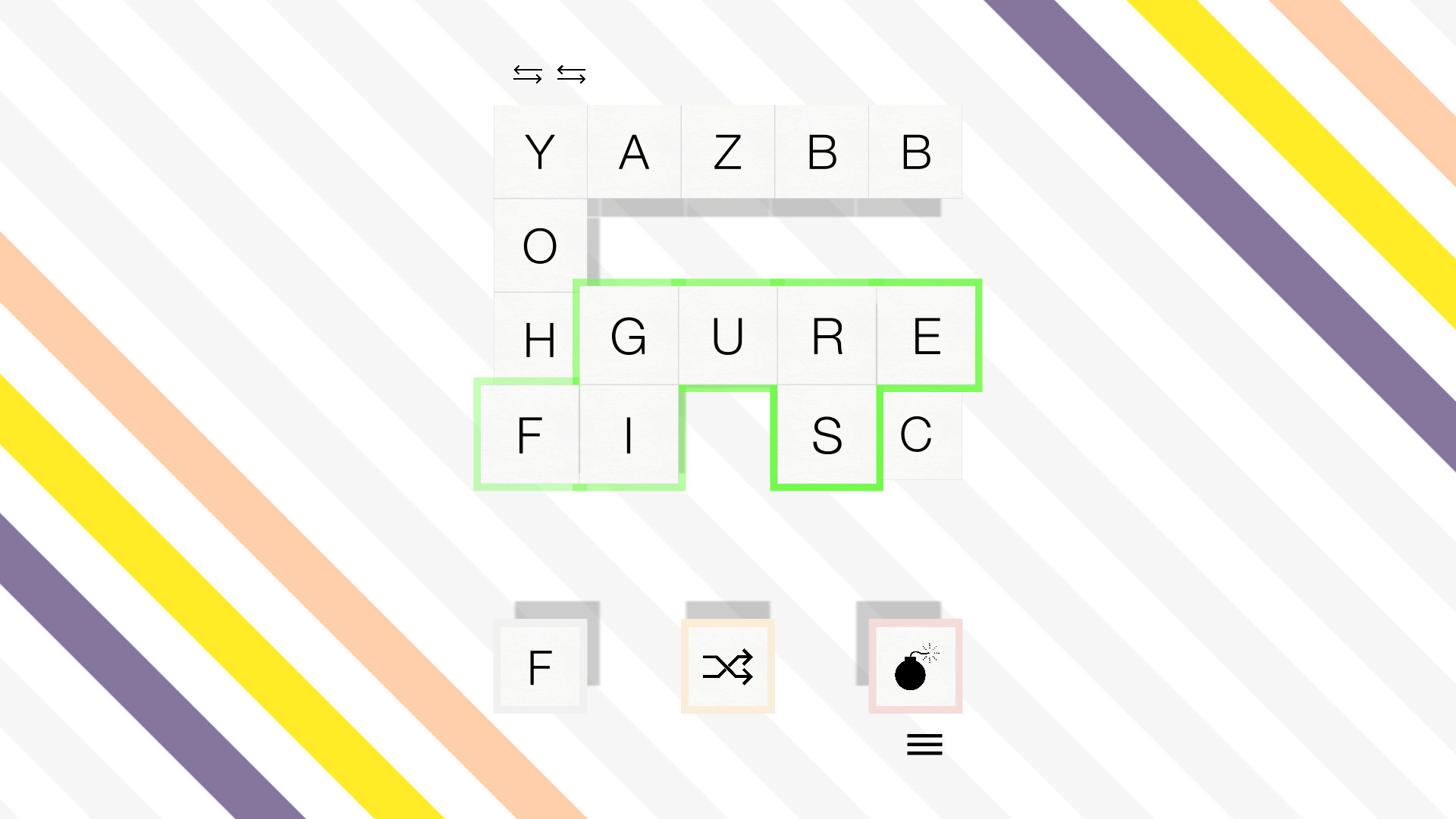
Thankfully, Rocketship Park understands the devil game they’ve created and tries to make life easier with the addition of powerups. Swap Tokens allow the tiles within the grid to be swapped at will, but these tokens have to be earned before being used so I found myself looking at the menu below the grid for more help. The shuffle button, which allows all remaining tiles to be randomly regenerated, was often used as a last resort since it often caused further despair as it would inevitably pull out Zs, and Xs would work their way into the game. The two saviours of my game were the bomb which removes one tile at no extra cost and the change icon changed a selected tile to a letter of my choosing. Rounding out the group are two fixed letters that can be swapped in to replace tiles in the game grid; these powerups are activated with a tap on the screen (or ZR if playing with controls). It’s clear that the help is to be used sparingly since you’ll need to clear a stage using three or fewer icons to earn a gold star.
With there being no time limit to the levels, I could take my time with each puzzle, and while later levels were frustrating and sometimes felt unfair, the grid layout on each level was set so I could step away for a few minutes before suddenly seeing the solution to the problem with fresh eyes. Moments like this invigorated the experience and drove me to smash through three more levels before slipping back into a slump. As Word Forward was initially created for mobile devices it makes sense that tapping and sliding are the preferred methods of play, and the utilisation of touchscreen controls did make the experience more engaging. The controller is supported but a little more cumbersome to use, although an unexpected benefit of playing in docked mode is the added eyes of a backseat gamer hollering words at the screen.
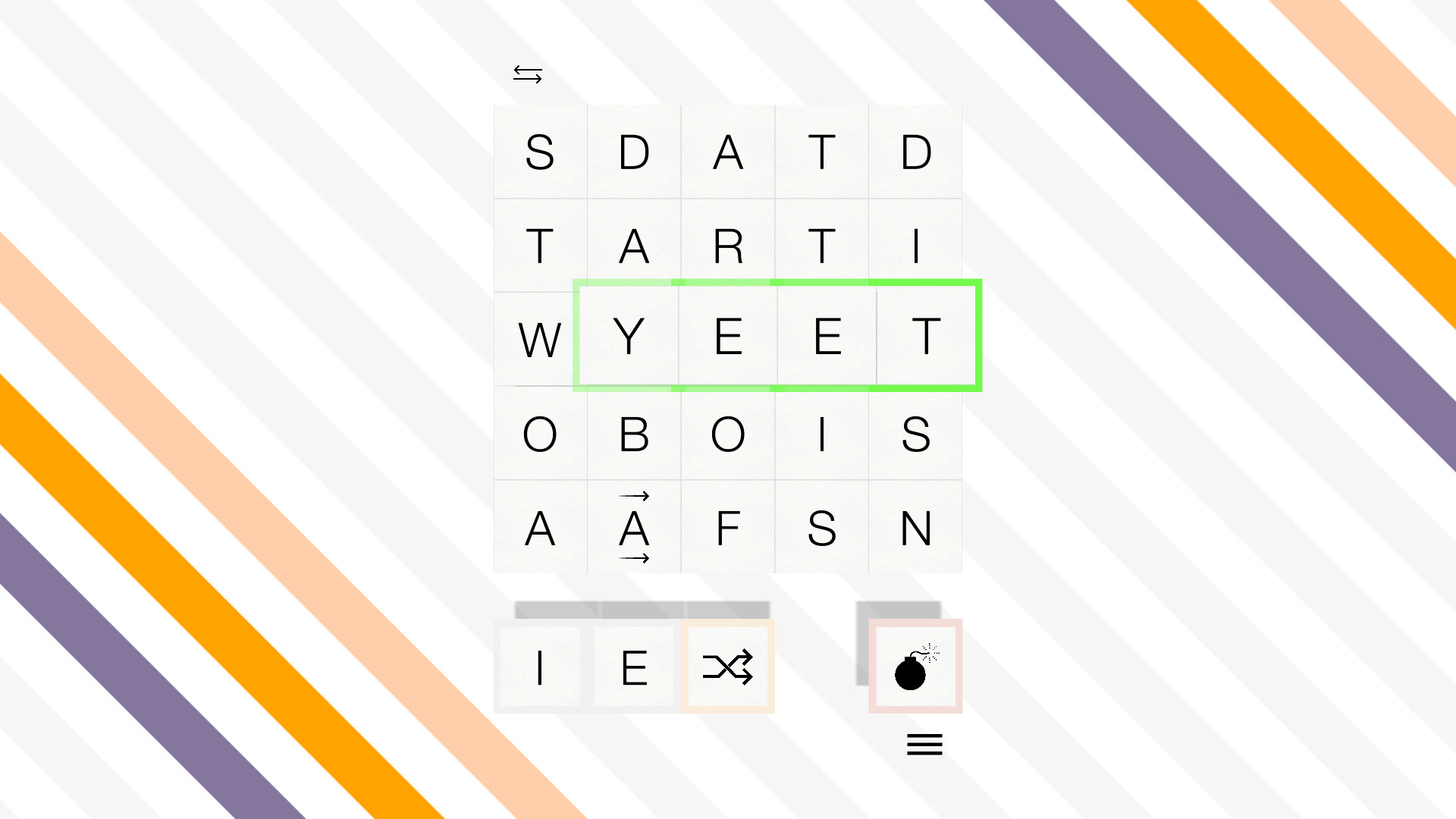
Like most puzzle games, the UI can best be described as serving a purpose; there’s a minimal number of options including a reset button, exit to the main menu, and turning the music on/off which leads me nicely onto an absolute misfire in Word Forward that needs to be addressed: the soundtrack. When I want to kick back and with a puzzle game, I’d prefer the accompanying music to be low key or perhaps borderline jazz, so long as it’s the ‘light on the sax’ kind. I don’t want At Doom’s Gate blaring out of the Nintendo Switch. Don’t get me wrong, I’m not going to start a mosh pit in the middle of my living room, but the rave beats made me feel that if I didn’t complete the challenge as quickly as possible, then something awful would happen to my cat. It’s a shame there is such an obvious mismatch in tunes and gameplay, as the songs are actually quite good – if they appeared in the right context, like a rhythm game, then the disparity wouldn’t be so stark.
You might call me old before my time, but for me Word Forward is an engaging puzzle game that really tests mental capacity. Despite how tough it gets, I enjoyed what can only be described as an oddly specific form of torture (particularly once I clicked the music off). By implementing a chess-level of strategy, it elevates the title to one that stands out in the overcrowded casual-puzzle game space. Word Forward makes no bones about being difficult; even with the power ups it will be a struggle to complete all of the challenges, that is unless you either take a serious amount of time carefully planning each move, or are a seasoned enigmatologist. Either way, I’d say it’s worth it to try.

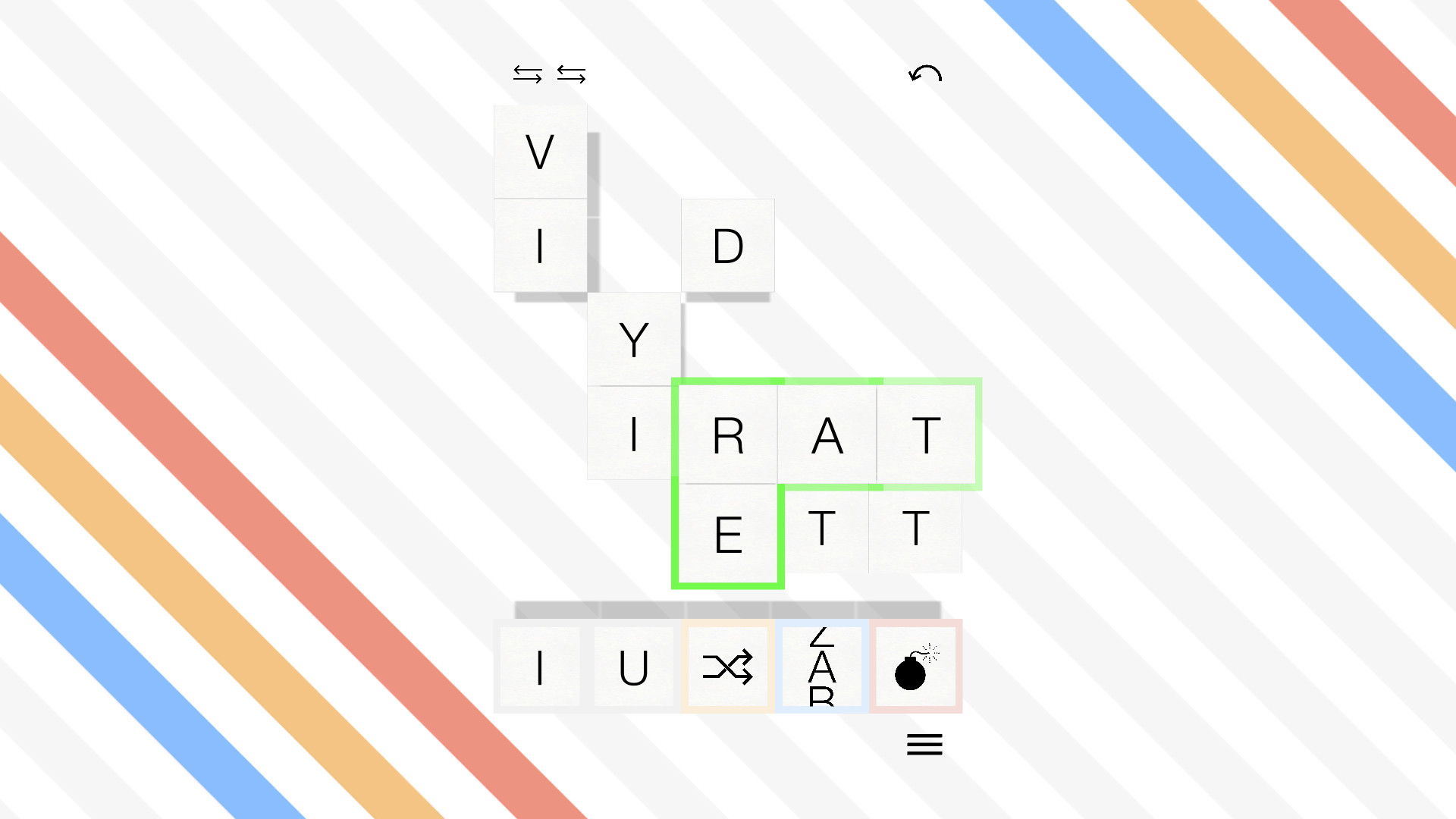
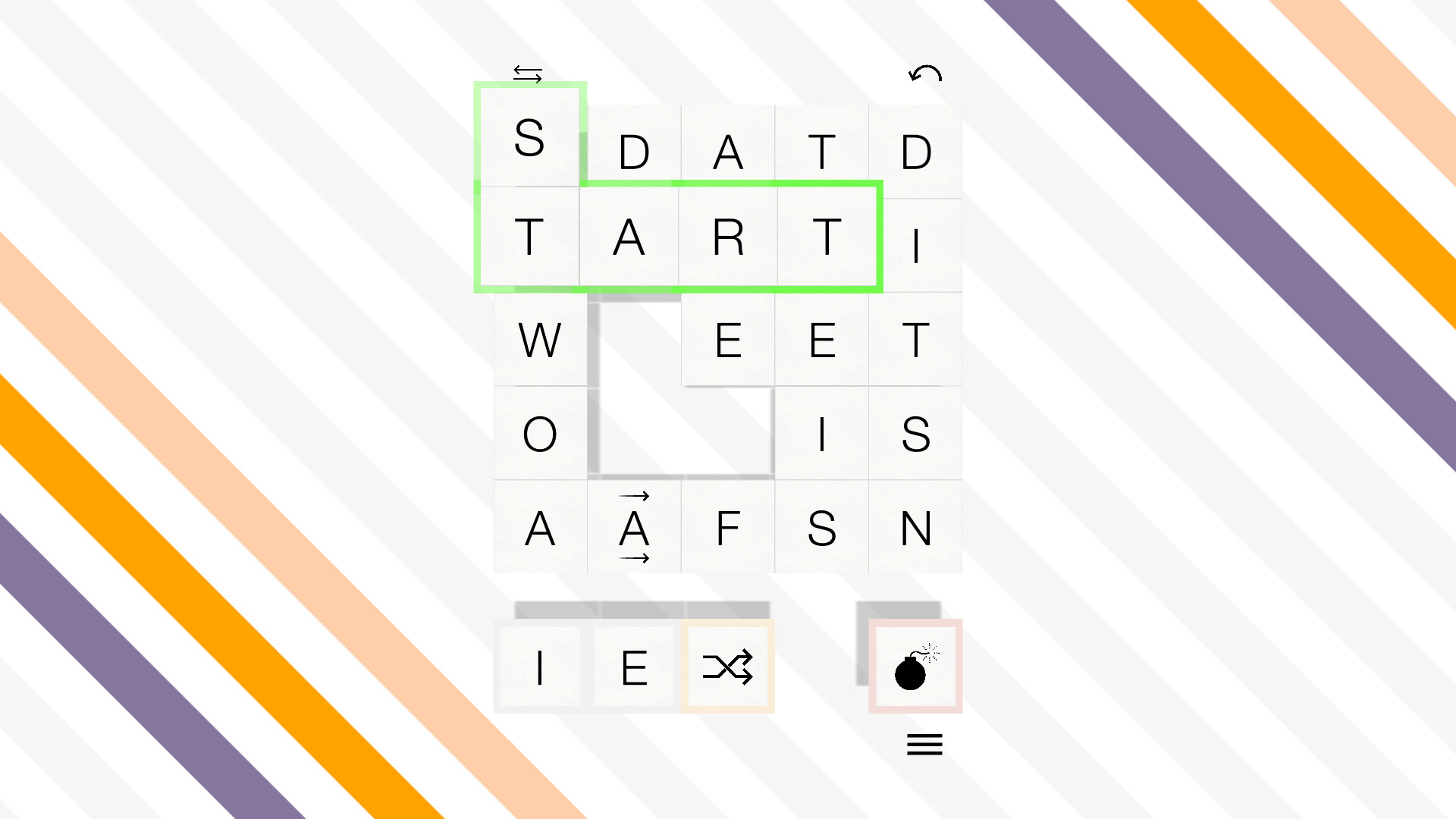
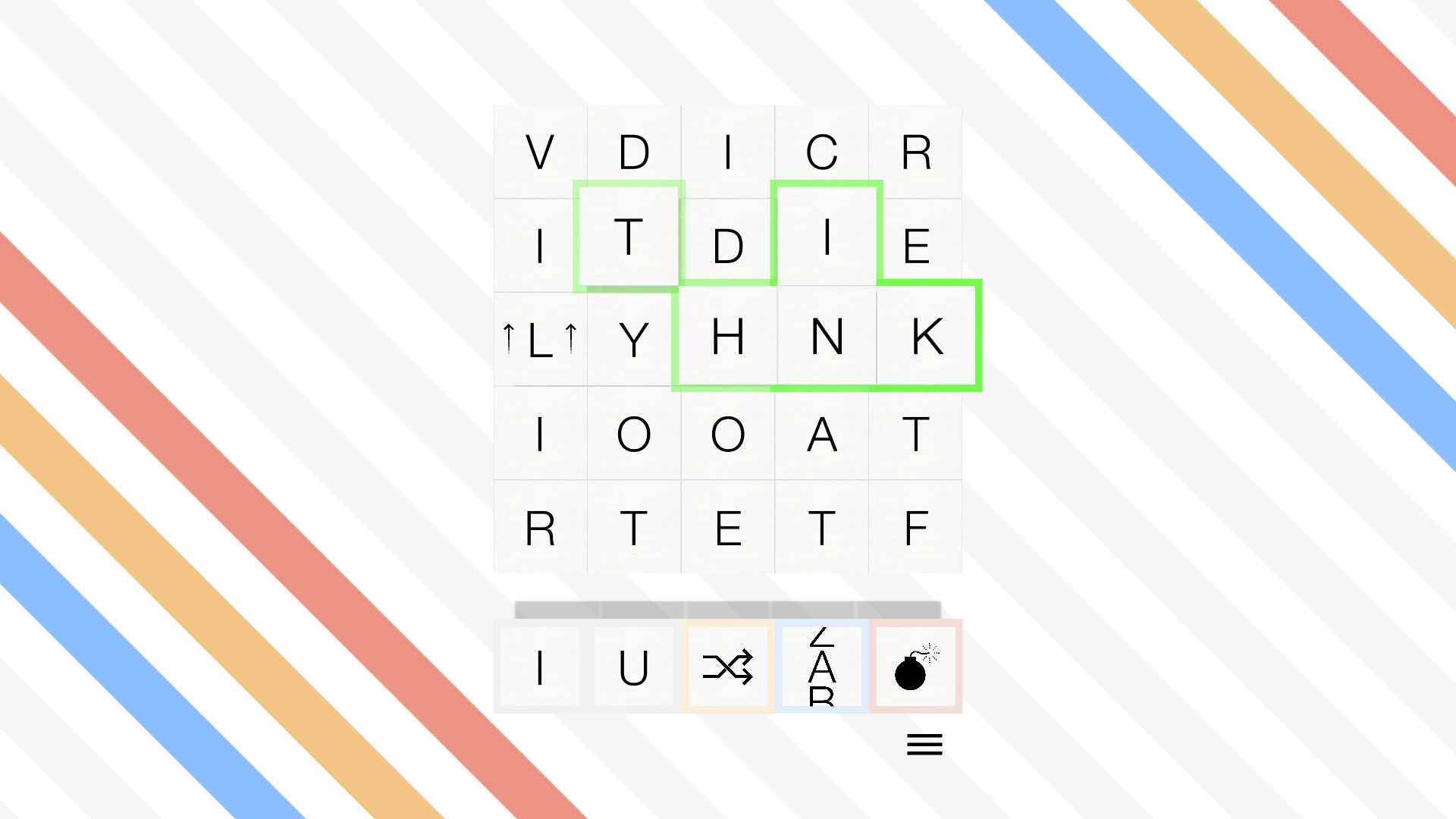

In the interest of full disclosure, the publisher provided VGamingNews with a copy of the game in order to conduct this review.







